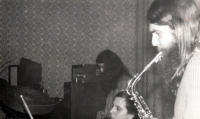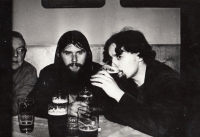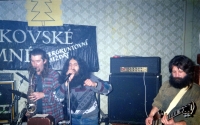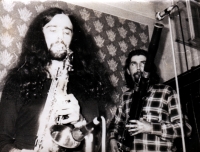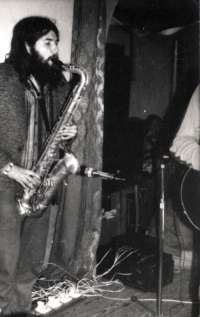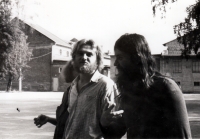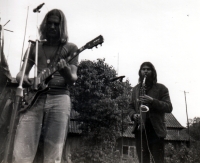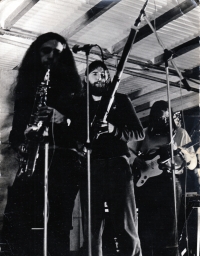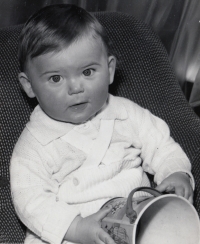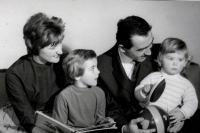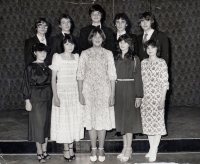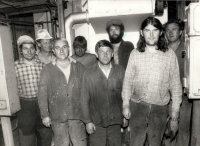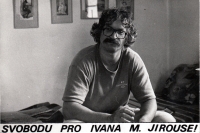As long as I’m breathing, I can make a difference

Download image
Vladimír Adamíra was born on 23 May 1963 in Přílepy in Kroměříž, as the younger of two children to his parents Jaroslava and Vladimír Adamíras. His father came from Liberec and worked as a labourer, and his mother worked as a clerk. The grandfather, Jaroslav Adamíra, was sentenced to twenty years in a political trial in 1950 and was released in 1960 thanks to an amnesty. In 1966 the family moved to Přerov, and the father joined the Communist Party. Vladimír trained as an electrician. Before the war, he got into the environment of the Přerov underground. He began to learn to play the saxophone, later the bassoon and clarinet. After dramatic experiences in the army, he managed to get a blue book at the cost of two stays in psychiatric hospitals. In 1984, he began playing in the band Heparoid, with which they performed at banned events. He continued with the spreading of samizdat, with his mother, a typist, helping with the transcription of printed material. In 1987, he moved to Ostrava, worked as a stage technician in theatres, and played in other bands. In 1988/1989, he attended dissident meetings in Dolores Šavrdová’s apartment in Ostrava. In 1989, he returned to Přerov and worked as a heating engineer in boiler houses. He signed the petition Several Sentences. After the revolution, he continued to experiment in the musical sphere, working as a DJ for two years, inviting various musicians to play. Among others, Lázaro Cruz, a Cuban jazz trumpet player. He was in the bands Heparoid, Black Rat, Absolute Abyss, Everything Seems to be Alright with the Hykls, Strayed, Good Old Handiwork, Sheeva Yoga, Super Tankers. He is still actively involved in music (Massola, Straka’s Traveling Circus) and is not averse to musical collaborations across genres. After the revolution, he has stuck to working in the boiler room, which gives him a creative outlet. In 2023, at the time of filming, he was living in Přerov.
